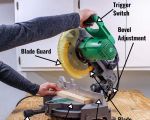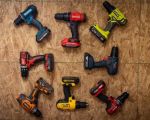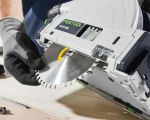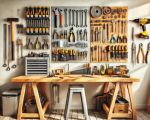- 1-Why-Precision-Matters-in-Screwdrivers
- 2-Key-Features-of-the-Best-Screwdrivers-for-Precision-Work
- 3-Top-Types-of-Precision-Screwdrivers-and-Their-Uses
- 4-Material-and-Build-Quality-Considerations
- 5-How-to-Choose-the-Right-Precision-Screwdriver-for-Your-Task
- 6-Real-Life-Examples-Showing-the-Importance-of-Good-Precision-Tools
- 7-Where-to-Find-the-Best-Precision-Screwdrivers-and-Accessories
1. Why Precision Matters in Screwdrivers
When it comes to delicate tasks like electronics repair, watchmaking, or assembling intricate gadgets, precision is paramount. Using the wrong screwdriver or a low-quality tool can strip tiny screws, damage components, or lead to frustration and wasted time. The best screwdrivers for precision work provide control, accuracy, and comfort, ensuring that even the smallest screws are handled with ease and care.
Precision screwdrivers are designed with specific tasks in mind—fine threads, small screws, and sensitive materials. Their ergonomic design and carefully crafted tips make a significant difference in both the quality and speed of your work. For anyone serious about precision repairs or assembly, investing in the right screwdriver is an indispensable step.
2. Key Features of the Best Screwdrivers for Precision Work
Understanding what makes a precision screwdriver “the best” helps in making an informed choice. Several essential features set these tools apart:
- Tip Accuracy and Fit: The tip must match screw heads exactly to prevent slipping or cam-out. High-quality precision screwdrivers have tips engineered to tight tolerances.
- Comfortable Handle: Since precision work often requires delicate, sustained effort, ergonomic handles that allow fine control and reduce hand fatigue are critical.
- Magnetic Tips: Many precision screwdrivers feature magnetic tips to hold tiny screws securely, preventing drops during delicate procedures.
- Durability: Materials like chrome-vanadium steel or S2 tool steel ensure the tips maintain their shape and sharpness over time.
- Rotating Caps: Precision screwdriver handles often have a rotating cap that allows smooth, controlled twisting motions without losing grip.
These features work together to make screwdrivers reliable tools for tasks that demand precision and delicacy.
3. Top Types of Precision Screwdrivers and Their Uses
Precision screwdrivers come in various styles and tip types tailored to specific screw heads and applications. Some of the most common types include:
- Flathead (Slotted): Used in older electronics and some mechanical devices.
- Phillips: Widely used in electronics and household items.
- Torx: Star-shaped tips common in modern electronics and automotive parts.
- Hex (Allen): Often found in bicycles, machinery, and electronics.
- Pentalobe: Specialized five-point star tips used in Apple devices.
Choosing the right type for your project ensures you don’t damage screws or components. Many precision screwdriver sets combine multiple tip types to cover a wide range of needs.
4. Material and Build Quality Considerations
The build quality of a precision screwdriver impacts both its performance and lifespan. Premium materials such as hardened steel resist wear and maintain tip integrity even after extended use. Handles made from durable plastics or rubberized coatings provide grip and comfort during intricate work.
For professionals, investing in screwdrivers with corrosion-resistant finishes and precision-machined tips pays off in reliability and reduced tool replacement costs. Cheaper tools may feel adequate initially but often lead to stripped screws or tool breakage, negating any upfront savings.
5. How to Choose the Right Precision Screwdriver for Your Task
Selecting the best screwdriver for precision work depends on your specific needs. Start by identifying the types of screws you most frequently encounter. If you repair smartphones or laptops, you may need Pentalobe and Torx tips, while watchmaking demands very fine flathead or Phillips screwdrivers.
Consider also your working environment. If you work in low-light conditions, screwdrivers with color-coded handles or LED lights can improve visibility. If portability is important, compact sets with interchangeable tips are ideal.
Ultimately, testing tools before purchase, reading reviews, and consulting expert recommendations help ensure you find screwdrivers that combine precision, comfort, and durability for your unique tasks.
6. Real-Life Examples Showing the Importance of Good Precision Tools
Many professionals and hobbyists can attest that having the right precision screwdriver can be a game changer. For example, a technician repairing high-end laptops found that using a generic screwdriver led to stripped screws and costly delays. Switching to a premium precision set with exact-fit Torx and Pentalobe bits drastically reduced repair time and improved customer satisfaction.
Similarly, an avid watchmaker credits his success in delicate repairs to a trusted set of ergonomic screwdrivers that provide excellent control and minimize wrist fatigue during long sessions. These stories underscore how investing in quality precision screwdrivers translates to better outcomes and greater efficiency.
7. Where to Find the Best Precision Screwdrivers and Accessories
If you want to ensure you’re equipped with the best screwdrivers for precision work, trusted platforms like ToolNest offer expertly curated selections. From comprehensive screwdriver kits to specialized individual tools, ToolNest connects you with quality products, shops, and accessories tailored to your professional or hobbyist needs.
Exploring such resources allows you to make well-informed decisions, access user reviews, and find the best deals on tools designed for precise, delicate tasks.









